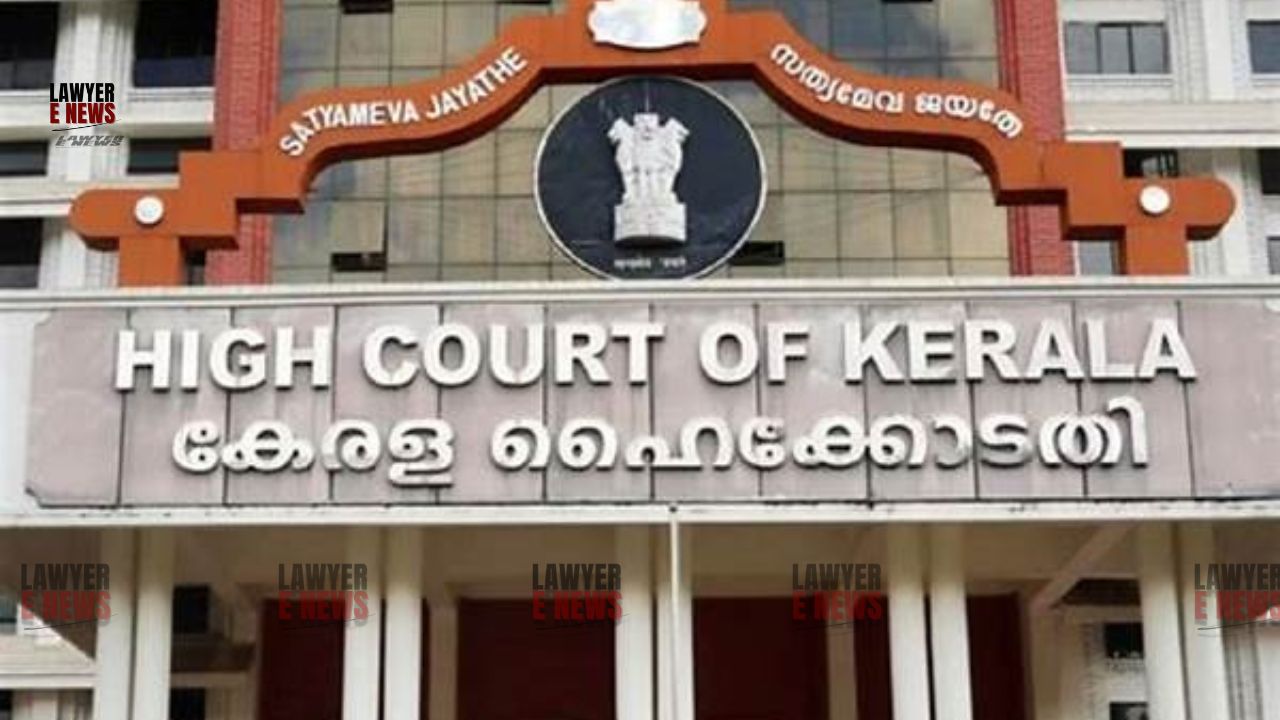-
by sayum
14 February 2026 2:22 PM



The Kerala High Court ruled on a petition by the Kerala State Electricity Board Ltd. (KSEB) challenging the demand for ESI (Employees’ State Insurance) contributions levied on contract workers engaged through petty contractors. The Court quashed the ESI demand notices against KSEB due to procedural irregularities and mandated a fresh assessment with a fair hearing. This case underscores a principal employer's duty to ensure ESI coverage for eligible workers under the Employees' State Insurance Act, 1948, but requires clarity and procedural fairness in calculating contributions.
KSEB, a public sector entity involved in power generation and distribution, was served notices by the Employees' State Insurance Corporation (ESIC) demanding ESI contributions for contract workers employed by petty contractors. KSEB challenged these demands, arguing:
Lack of Employer-Employee Relationship: KSEB contended that contract workers were employed by independent contractors, not directly by KSEB, and thus KSEB had no supervisory or employment relationship with these workers.
Exemption Based on Earnings: KSEB argued that most employees’ salaries exceeded the ESI threshold of ₹21,000/month, making them exempt from ESI coverage.
Erroneous and Inflated Assessments: KSEB claimed that ESIC’s calculations were arbitrary, involving exaggerated worker counts and inflated wage estimates.
The ESIC, however, maintained that KSEB, as the principal employer, was responsible for ESI contributions for all workers, including those engaged through contractors, citing Section 2(12) of the ESI Act, which applies to establishments employing more than 10 workers.
The Court confirmed KSEB’s liability as the principal employer to ensure ESI coverage for workers, even if engaged through contractors. It emphasized that ESI Act provisions apply to establishments employing more than 10 workers, including those hired indirectly.
“KSEB’s duty as a principal employer under the ESI Act encompasses contract workers, regardless of direct supervision.”
KSEB argued that employees earning over ₹21,000 per month should be exempt from ESI contributions. The Court held that while ESIC’s demand should indeed account only for eligible employees under the ESI Act's wage thresholds, the ESIC must reassess the eligibility and count of employees accurately.
“Assessment of ESI contributions must consider the statutory salary threshold and eligible employees, ensuring compliance with Section 2(9) of the ESI Act.”
The Court noted discrepancies in the ESIC’s assessment process, finding that KSEB was not given a fair opportunity to address the claimed employee numbers and wage calculations. It highlighted the importance of due process and procedural fairness in assessing and enforcing contributions under Section 45A of the ESI Act.
“The respondent’s assessment and demand processes must uphold procedural fairness, allowing the petitioner a reasonable opportunity to contest discrepancies.”
Based on the procedural irregularities and the need for accurate assessments, the Court quashed the ESIC’s demand notices (Exts.P4, P7, P9, and P10) against KSEB. It directed ESIC to conduct a fresh assessment after allowing KSEB a hearing, ensuring fair and precise calculations based on actual, eligible workers.
“In the interest of justice, the existing demand notices are set aside, and a reassessment must be conducted following a fair hearing.”
The Court allowed the writ petition in part, quashing the contested ESI demand notices and ordering a reassessment of KSEB’s ESI contribution liabilities with procedural fairness. This judgment reiterates the principal employer's obligation to ensure ESI compliance for contract workers, while mandating accurate and transparent contribution assessments by the ESIC.
Key Takeaways from the Judgment
Principal Employer’s Duty Extends to Contract Workers: KSEB, as a principal employer, holds liability for ESI contributions for contract workers under the ESI Act.
Eligibility and Wage-Based Exemptions: ESIC must consider wage thresholds to determine the applicability of ESI contributions, focusing on eligible employees only.
Fair Assessment Procedures: ESI demand assessments must follow procedural fairness, including granting employers the opportunity to address discrepancies in employee count and wage estimates.
Date of Decision: 11/11/2024
